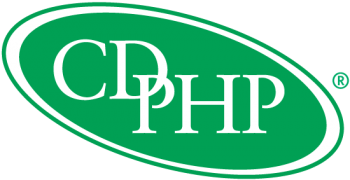News
May 12, 2016Carter Conboy Client Advisory: Are you a Food Producer Doing Business in Vermont?
Status: It’s Complicated
Growing, baking, cooking, pickling, fermenting and otherwise producing food and beverages for sale in Vermont is about to become much more complicated.
It does not matter if you are an international purveyor of countless household brands or a mom-and-pop running a baked goods shop out of your home kitchen. If your food is being sold in Vermont and contains ingredients which have been produced through a genetic engineering process or contains genetically modified organisms, (GMO’s), you must label that food as such beginning July 1, 2016.
What are you doing to prepare?
Perhaps only topped by Bernie Sanders, the biggest recent news-maker out of Vermont is the state’s Genetically Engineered Food Labeling Act. The Act mandates that any food or beverage which is sold in the Green Mountain State and entirely or partially produced with genetically engineered ingredients, must be labeled as such.
This Advisory is not to advocate or argue the merits, or lack thereof, of GMO labeling or the science behind the notion. Such is akin to discussing politics or religion on Facebook with strangers – it can quickly spiral into a series of uneducated “expert” opinions – it’s just not relevant. What is important is your understanding of this complicated Act, its associated regulations and your preparedness to plan accordingly for the July 1st deadline. Your business is at stake.
Legislation and Regulations
Vermont’s Act 120, titled Labeling of Food Produced with Genetic Engineering, contains specific mandates for food sold to consumers in Vermont. The legislation is not entirely sweeping. There are exceptions such as food which is derived entirely from an animal that is not itself a product of genetic engineering but which may have been treated with products or fed food that contains genetically modified ingredients. What does that even mean? Well, if you fed your chickens corn which was produced with genetic engineering, there is no requirement under the law to label the chicken, or the egg, as containing GMO’s. However, if those eggs are used in baked goods which contain vegetable oil or corn sugar produced with genetic engineering, the final product, a muffin for example, would need to be labeled as containing ingredients produced through genetic engineering. That is because of the oil, not the egg. All of that and the law does not require you to identify the ingredient which was genetically engineered on your labeling. Like I said, it’s complicated.
What about processed foods? If they are sold for immediate consumption and are not packaged for retail sale, such as a hot dog at a convenience store, it is exempt from labeling. Food sold in restaurants? Alcoholic beverages? Both exempt.
How foods are labeled is also not such a simple proposition. While the regulations mandate that the food be labeled “Produced with Genetic Engineering,” “Partially Produced with Genetic Engineering,” or “May be Produced with Genetic Engineering,” there is little additional specific direction. There is no mandate on the size of the label, or even that the specific ingredient which was produced with genetic engineering needs to be identified. So long as the packaged food product is labeled, that is sufficient. Unpackaged foods need to be labeled in their description in the store, if that’s how they are being sold.
Compliance
Perhaps the most burdensome requirement of the law will be a business’s record retention and ability to demonstrate the sourcing of the ingredients. Enforcement and compliance demonstration has not been completely articulated in the law. Certainly proof of labeling needs to be retained, as would proof of an applicable exemption.
Proof that a food does not contain genetically engineered ingredients may be evidenced by a sworn statement from the supplier or producer of the ingredient indicating that the product was: (1) made or grown from food or seed that has not been knowingly or intentionally produced with genetic engineering, and (2) has been segregated from and not knowingly or intentionally comingled with genetically engineered food or seed.
Retailers must retain records to demonstrate compliance with the law for one year after the date of sale, and manufacturers must retain such records for three years from the date of sale. Even
with this direction in the law, one can imagine the supply chain difficulties and disputes which can, (and will) arise to ensure compliance or to seek indemnification if an enforcement action ensues.
Enforcement
A multi-front assault against Vermont’s Act has not been successful to date and now producers, suppliers and retailers must face the music and take steps to comply. The Vermont State Attorney General has indicated that enforcement from the State will begin January 1, 2017. With fines of up to $1,000 per day per product which is found to be in violation of the law, there is plenty of motivation to comply. On top this, the potential for third-parties to bring private actions for damages has class action litigation potential, which is something that is cost prohibitive to even the largest producers in the industry.
Make sure you are prepared and in compliance come July 1st. If you are not or have questions relevant to the application of this regulation, seek the appropriate advice of legal counsel.
ADAM H. COOPER is a litigation attorney at Carter Conboy. He represents food producers and processors, industrial manufacturers, healthcare professionals and facilities, pharmaceutical retailers and professionals, and commercial retailers in claims related to food and beverage law, medical malpractice, product liability, professional liability, and personal and premises liability. He is a Martindale-Hubbell AV™ Preeminent rated attorney and a named SuperLawyer®. He is past-president of the Defense Research Institute of Northeastern, New York, past-president of the Federation of Bar Associations for the Fourth Judicial District, and co-chair of Leadership Tech Valley. He can be reached at acooper@carterconboy.com and 518-465-3484.
























